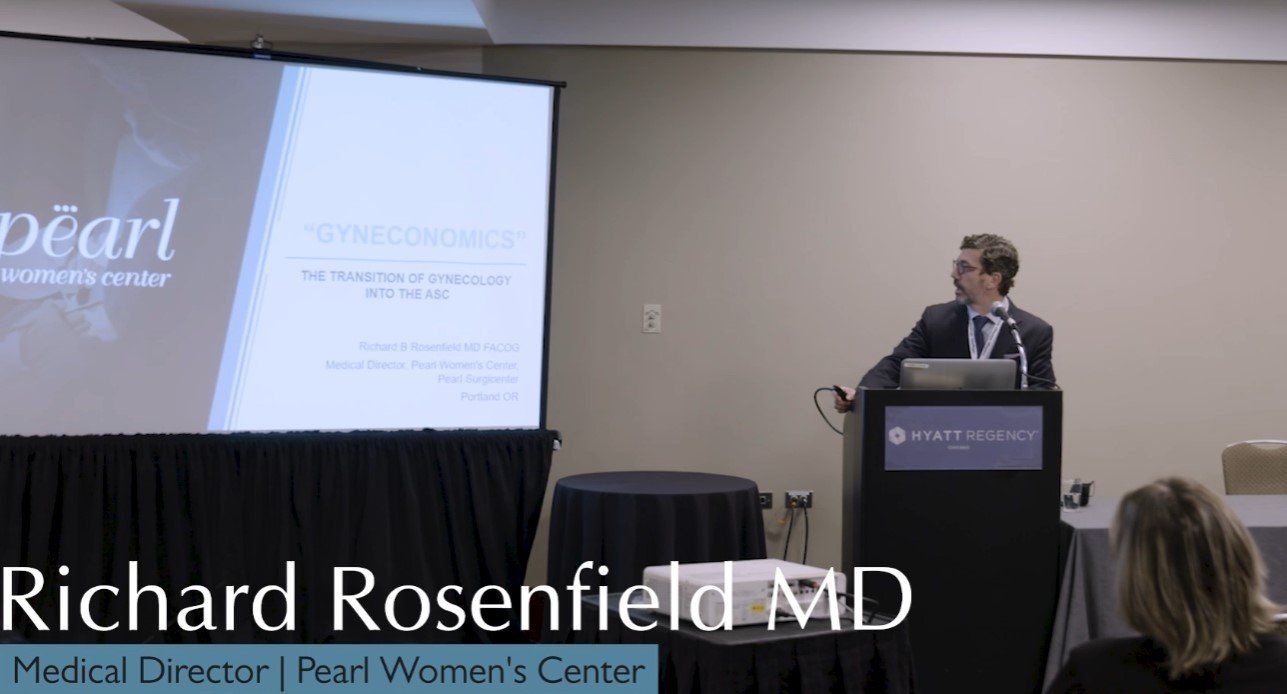On High Volume Gynecologic Surgery, and How to Pick A Surgeon for Your Hysterectomy
If you had a serious issue with your knee and needed a surgeon to repair it, how would go about picking that surgeon? If you were like most people, you would find the most experienced and best surgeon in your area, at least within whatever insurance network you might belong to. And that would make sense, as the experience level of your surgeon is a strong predictor of outcomes, including complications of surgery.
So you would assume that this would be similar for all types of surgery, correct? People of reasonable means will seek out the best and most experienced surgeon for whatever type of surgery they need, whether it be neurosurgery, bowel surgery, or in this case, gynecologic surgery.
The troubling thing is that in the case of gynecologic surgery, that would be wrong. In fact, the majority of gynecologic surgery in this country is performed by relatively inexperienced surgeons who research would suggest will have a higher rate of complications than more experienced surgeons.
One of the big reasons for this is that while women don’t have pre-existing relationships with neurosurgeons and orthopedists, they do have a pre-existing relationship with a gynecologic surgeon – the person that delivered their babies. As such, women who need gynecologic surgery generally go with the person they know, rather than searching for the most experienced person in their area.
The problem is that gynecologic surgery just isn’t like other surgery, in that unlike your typical general surgeon that does hundreds of surgeries a year, most general obstetrician gynecologists who deliver infants actually don’t a great deal of surgery. Most operate 1 or 2 days a month, and may do fewer than 10 major gynecologic surgeries a year. And even though the data clearly shows that this volume of surgery isn’t enough to maintain a level of skill that leads to a minimal level of complications, it is very unlikely that a low volume surgeon will tell their patients that on the average they would have better outcomes if they sought surgical care with a specialist gynecologic surgeon.
There is a also a big issue with training. General surgeons spend at least five years in residency, at least 4 of which involves frequent time in the operating room. If they do a fellowship, they spend 1-3 more years where they spend almost every day in the operating room. A general gynecologic surgeon, on the other hand, has had a four year residency where they were supposed to learn how to manage pregnancy and deliver babies, how to do routine women’s healthcare, and at the same time become qualified gynecologic surgeons. In the end, only 1 year out of their 4 years of training is spent in surgical training (outside of the time doing cesarean deliveries which is really not a good substitute for more complex gynecologic surgery). And during this year, the typical trainee spends two out five days each week in the operating room, doing at best 6 cases per week. That leads to a total training of around 300 gynecologic surgical cases in an entire residency program. This is just a fraction of what a general surgeon does over the course of their residency. It is a common stereotype in academic medicine that gynecologic surgeons by and large are not as well trained as the rest of the surgical world, and that other surgeons have to come in a rescue them from the problems they run into in the operating room. The sad thing is that there is some truth to this.
But at the same time, there are gynecologic surgeons who have more training, or just by the nature of their practice have accumulated a great deal more experience than average. In many cases the top surgeons in a community have completed a fellowship of some kind, such as a fellowship in minimally invasive gynecologic surgery, gynecologic oncology, or pelvic floor surgery. In most cases, these surgeons are only gynecologists and do not deliver babies anymore. The reality is that it very difficult to maintain a high volume surgical practice while also maintaining an obstetrical practice.
The funny thing is that the idea that gynecologic surgery should be a surgical subspecialty like urology, neurosurgery, or liver surgery is something that has been around for a long time. I have been in medicine since 2001, and I can’t tell you how many times I have heard the idea that the specialty should split into doctors that deliver babies and do pap smears and doctors that do surgery, with completely different training paths. It makes all the sense in the world.
So why don’t we do it? Wouldn’t it be better for women? I think it clearly would be. But the problem is that the specialty doesn’t have the political will to do it. Because while most people agree it would be a good idea for women to have their gynecologic surgery with surgeons who specialize in surgery and do hundreds of cases a year, the average general obstetrician/gynecologist doesn’t want to stop operating and refer their patients out to a specialist surgeon. They like operating, and why shouldn’t they? Surgery is fun and interesting to do, and when they completed their four year training program they were qualified as surgeons. And while the individuals within ACOG, the governing body of Obstetrics and Gynecology, recognize that high volume specialist surgeons get better results, they are somewhat bound to represent the interests of their constituency – the tens of thousands of general obstetrican gynecologists already trained who want to continue to operate. So even though I have heard “Split the specialty!” for 15 years, we don’t seem to be any closer to actually doing this.
So for now, we are stuck with a world where there are a relatively small number of high volume highly experienced gynecologic surgeons, and a lot of relatively low volume surgeons who the evidence shows will get demonstrably inferior results, and in most cases, patients that don’t know the difference.
So what do these inferior results look like? An expert surgeon doing a laparoscopic hysterectomy completes it in less than 90 minutes, and probably loses less than 100 cc of blood, in some cases far less. In some cases it may even take less than an hour. In comparison, a typical gynecologic surgeon often takes 2.5 – 3 hours to do the same surgery, and often loses two to three times a much blood. Major complications will be relatively rare with both groups, but the experienced surgeon will have, for example, a urinary tract injury every 300-500 cases, while the less experienced surgeon may have this complication as frequency as once every 50 cases. So usually things will go well, but for the person who experiences one of those excess complications, it will be tremendous amount of pain and suffering that could probably have been avoided by seeking out a more experienced surgeon. The expert surgeon almost never converts a minimally invasive surgery to a more morbid open surgery, while the less experienced surgeon has to convert to laparotomy once every 10 to 20 cases. Expert surgeons are also far more likely to be able to do difficult and complex surgery via minimally invasive techniques than a less experienced surgeon. In the realm of endometriosis surgery it is even a bigger problem, where there are really only a small number of people who develop and maintain the skills to manage women with complex disease.
So if you are a woman who needs gynecologic surgery, make sure you are working with a highly experienced surgeon. If your doctor recommends surgery, ask them how many cases they do in a year. Ask them how often they do the specific surgery they are recommending for you. If the answer is 50 or 100 per year, they’re probably a great person to work with. But if they answer 10 or 20, there may be someone in your community or in a nearby community that might get you better results. And even though you may have a long relationship with your doctor, its fine to say that you would like to be referred to a high volume specialist. If it was their wife or friend, they would probably want the same thing.
*****
Doctor Fogelson is a high volume specialist gynecologic surgeon in practice at Pearl Women’s Center in Portland, OR, an office specializing in the high quality minimally invasive gynecologic surgery. Doctor Fogelson does hundreds of major cases per year along with his partner Dr. Richard Rosenfield, and both serve as surgical mentors to both surgical fellows in training as well as community surgeons seeking to maintain and improve their surgical skills. Drs. Fogelson and Rosenfield also offer complex endometriosis care and accept referrals from the Portland area as well as throughout the Pacific Northwest. Dr. Fogelson can be reached for clinical consultation at 503-771-1883.
The post On High Volume Gynecologic Surgery, and How to Pick A Surgeon for Your Hysterectomy appeared first on Pearl Precision Surgery.




